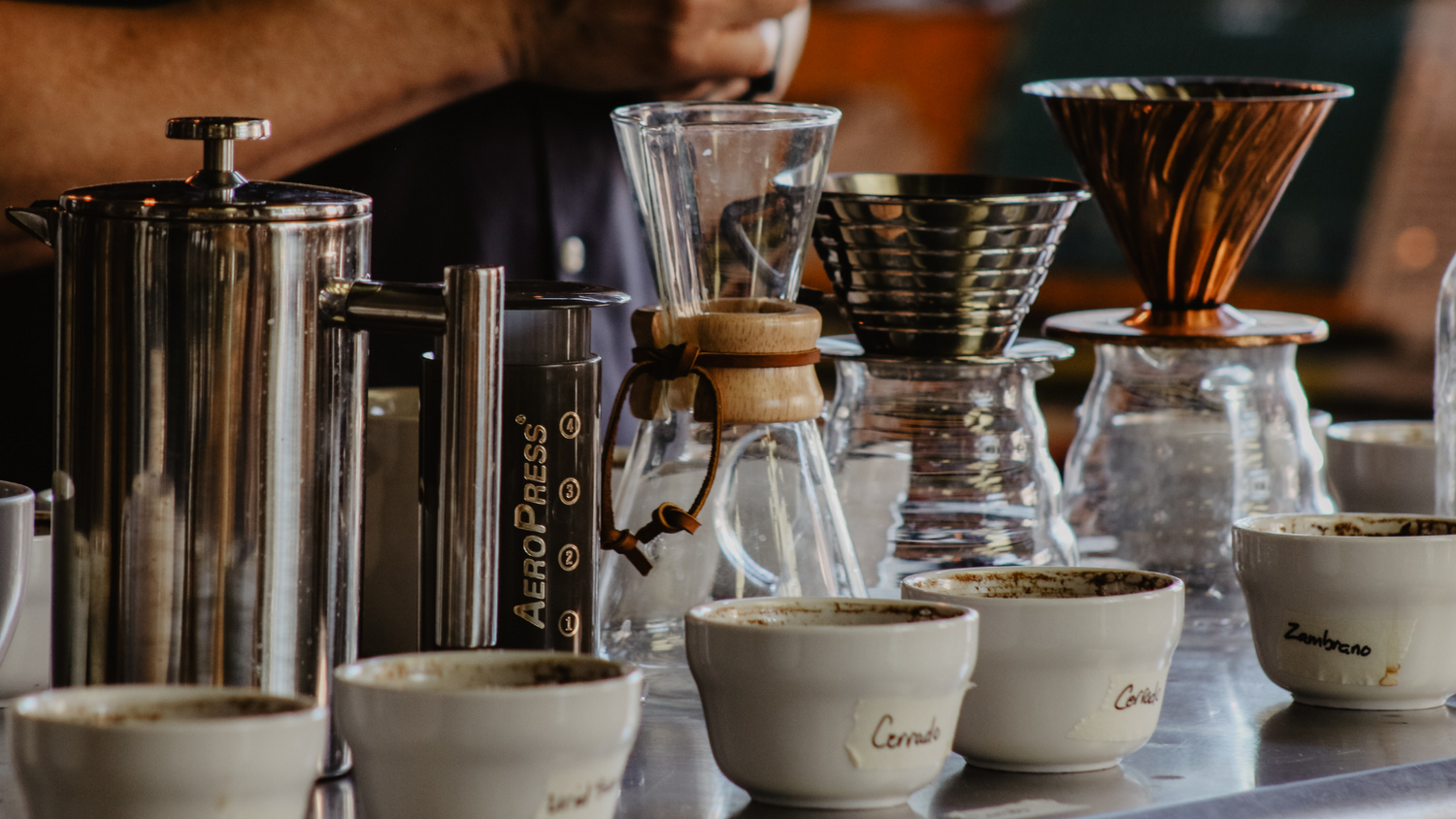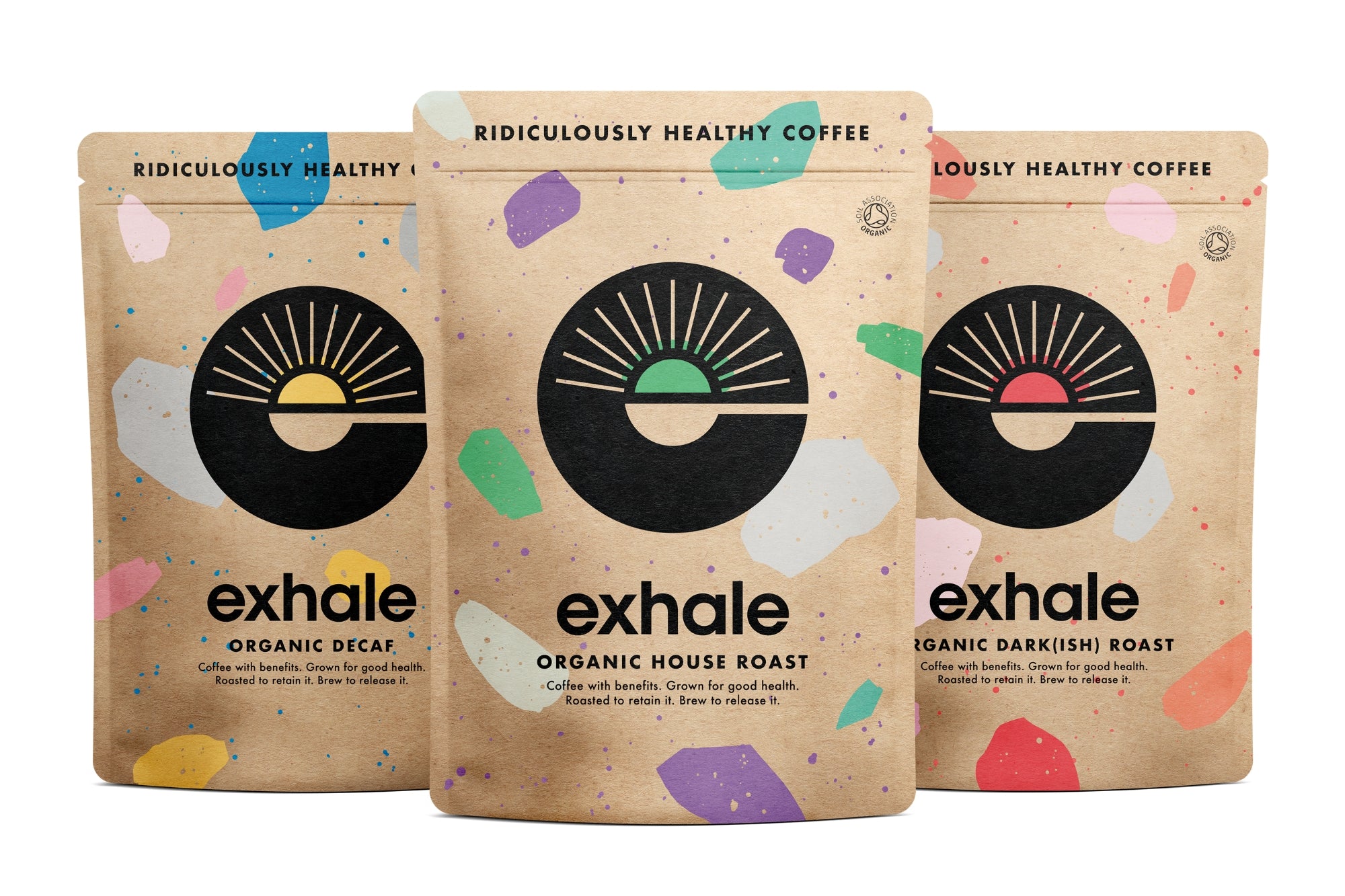More than just a status symbol, speciality coffee has to go through a rigorous testing process before it can officially be classified as speciality. Here’s how it gets there.
The term “speciality coffee” gets thrown around a lot – but what actually does it mean? Emma from the coffee consultancy, Caffeina helps us spill the beans. (Aye with the puns. I can’t help it. They just come to me.)
First, a quick whistle-stop tour of the early life of coffee, before it gets to be graded.

All coffee is created equal
All coffee starts its life as a coffee cherry, which grows on a plant that is part of the coffea genus (the term for the overarching group of coffee plants).
They grow in really specific climates – namely areas that span the equator, like Africa, Asia, and Central and South America.
All coffee plants span from Africa. Originally that was the only place coffee grew, and then the reach was expanded through trade to other countries with good growing environments. (This is quite a murky point in history where coffee plants, and the people that grew them and worked on the plantations were stolen from Africa to build plantations in other parts of the world.)
Coffee cherries grow on a branch as a fruit that ripens and turns from green to red or yellow—depending on the variety—and develops green seeds which are the actual coffee beans.
When it’s ripe, the fruit needs to be harvested quickly to maintain quality and avoid damage from dropping to the ground or from insects.
It is then processed to remove the seeds – either with water (washed), with sunshine (natural coffee) or a mixture of both. The way the coffee is processed can impact the flavour, quality and the healthy compounds in coffee.
Fun fact: We use washed coffee at exhale, because UV rays can deactivate polyphenols. Read more about choosing a healthy coffee.
After being processed and dried, there's another point to hit before it can be shipped to a roastery. Grading.
It now has to be sorted and graded by size, density and appearance. This is to maintain quality and consistency of the beans, as it affects the roasting. Just like when you’re roasting veggies you need them all to be the same size to cook at the same time.
What makes a speciality coffee?
To be classed as a specialty coffee, it has to receive a score of over 80/100.
To get this score, coffee is tasted very specifically through a process called cupping. It examines the different attributes of each coffee in a very uniform way to get a score out of 100. Any score over 80 is classed as a specialty coffee. Below that is classed as “commercial grade”, which is still totally fine to drink, just not as complex in flavour.

Here’s how cupping works:
The whole process is very involved, but here’s the basics of the flavour profile. In cupping, the flavour notes of coffee can be broken down into five main sections.
Fragrance
This refers specifically to the smell of dry coffee grounds. Coffee is packed full of volatile aromatics that disappear really quickly – so you have to get in there fast to smell them as soon as you open the bag or grind the beans. The fragrance gives a great indication of what the coffee will be like when its brewed. Experienced cuppers would also be able to tell the levels of complexity or detect anything in there that’s not nice.
Aroma
This is the smell of coffee when it’s wet, e.g. after it’s been brewed. This gives a good indication of the flavour notes to come.
Body
The cupper will look at if the coffee is light, medium or full-bodied. It’s true that if you want a fuller bodied coffee – you can simply add more coffee to your brew. But this is more about the coffee's natural attributes. For example, you’d expect a washed coffee to have a lighter body than a naturally processed coffee. What the cupper is really looking for is if the quality of the body matches what they would expect from this type of coffee.
Taste
Is the coffee sweet, bitter or sour? Is it an enjoyable acidity or is it sour and sharp? All coffee is bitter, but high quality coffee will have less obvious bitterness and be balanced out with sweet and acidic notes.
Flavour
This is different to taste – it's actually a combination of the all the different tastes—salt, sweet, bitter, sour and umami—combined with aroma. This final point is to holistically experience the overall flavour of the coffee. Is it chocolatey? Is it sweet like berried fruits?
High-stakes form filling
Ready to have your mind blown? The forms that cuppers have to fill out are so detailed and so in depth that any trained taster could taste the same coffee anywhere in the world and it would get the same score our of 100. WOAH.
This is a crazy thing to wrap your head around, but it’s also so important, because how a coffee is scored dictates the price it can be sold at. So, it’s really key to the growers’ livelihoods that the scoring system is fair and consistent across the board.
Speciality coffee is not about personal preference. It’s purely objective.
So, objectively, we feel pretty good that we use speciality coffee at Exhale.
Head here to read more about why Exhale coffee... is so special.





Leave a comment
All comments are moderated before being published.
This site is protected by reCAPTCHA and the Google Privacy Policy and Terms of Service apply.